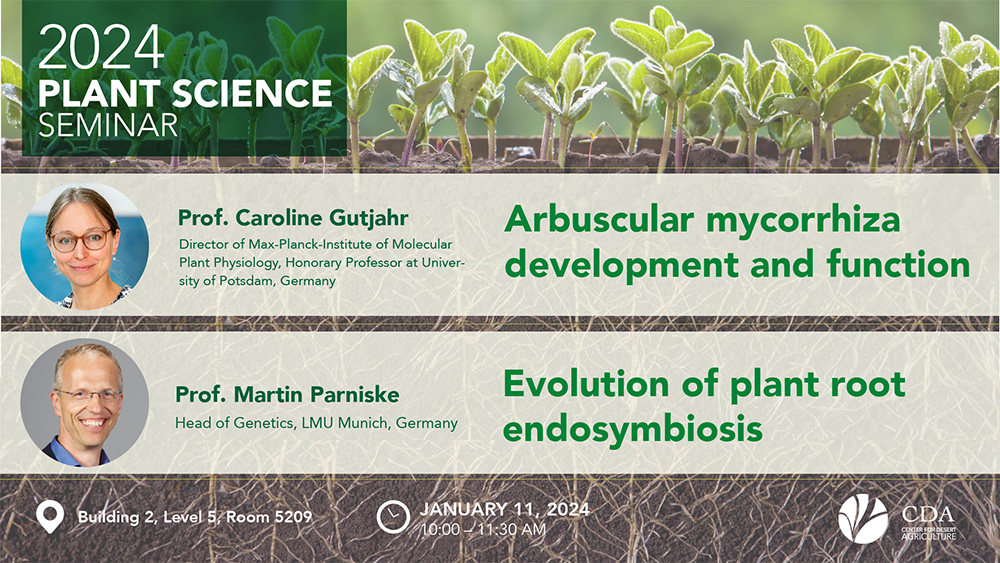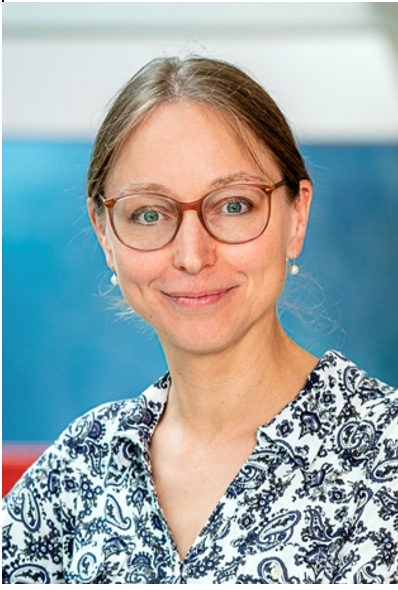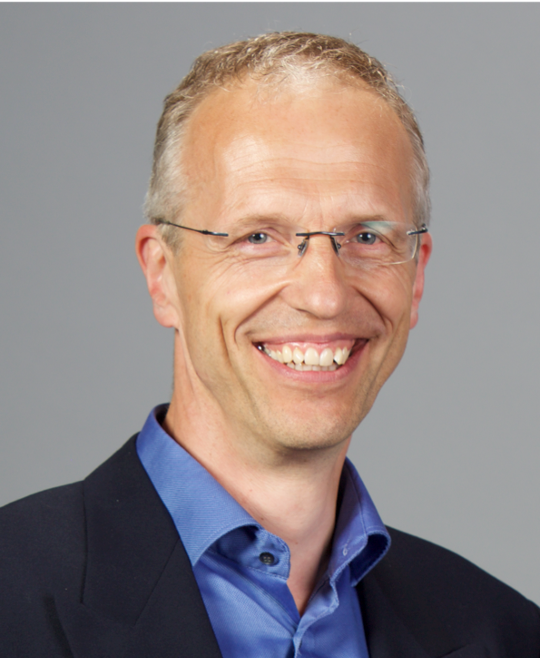
It is with great pleasure that Professor Brande Wulff and Professor Ikram Blilou welcome you to the first Plant Science Seminar in 2024. This time it will be a seminar with two speakers – Prof. Dr. Caroline Gutjahr and Prof. Martin Pariske – 30 min each, followed by time for Q&A afterwards.
| Location | Building 2, Level 5, Room 5209 (please note that there will not be a Zoom option, and no recording) |
| Start Time | 11th January 2024 at 10:00-11:30 |
Prof. Dr Caroline Gutjahr:

Lecture Title: Arbuscular mycorrhiza development and function
Job title: Director of Max-Planck-Institute of Molecular Plant Physiology
Honorary Professor at University of Potsdam
Lecture Abstract: Most land plants interact with fungi of the clade Glomermycotina to form a symbiosis called arbuscular mycorrhiza (AM). The fungi provide mineral nutrients to plants and receive up to 20% of photosynthetically fixed carbon in return. For symbiosis establishment, AM fungi colonize the root interior and the inside of plant cells. Symbiotic infection of single, already differentiated cells requires a poorly understood cellular remodeling program that is intertwined with mechanisms that control plant development and physiology. I will present how we work towards understanding molecular mechanisms underlying development and function of this fascinating symbiosis.
Professor Martin Parniske

Lecture title: Evolution of plant root endosymbiosis
Job Title: Professor, Head of Genetics, LMU Munich, Germany
Abstract: The nitrogen-fixing root nodule symbiosis (RNS) makes plants independent of nitrogen from the soil, yet it is restricted to a single clade of angiosperms. Considering the nitrogen limitation in many terrestrial ecosystems, it appears surprising that multiple independent losses of RNS have been detected (van Velzen et al., 2018; Griesmann et al., 2018). This discovery revealed the existence of a selection pressure against this symbiosis, the nature of which has been subject to speculation (Griesmann et al., 2018; van Velzen et al., 2019). A previously overlooked, yet obvious, driver of these losses will be portrayed in the lecture.

